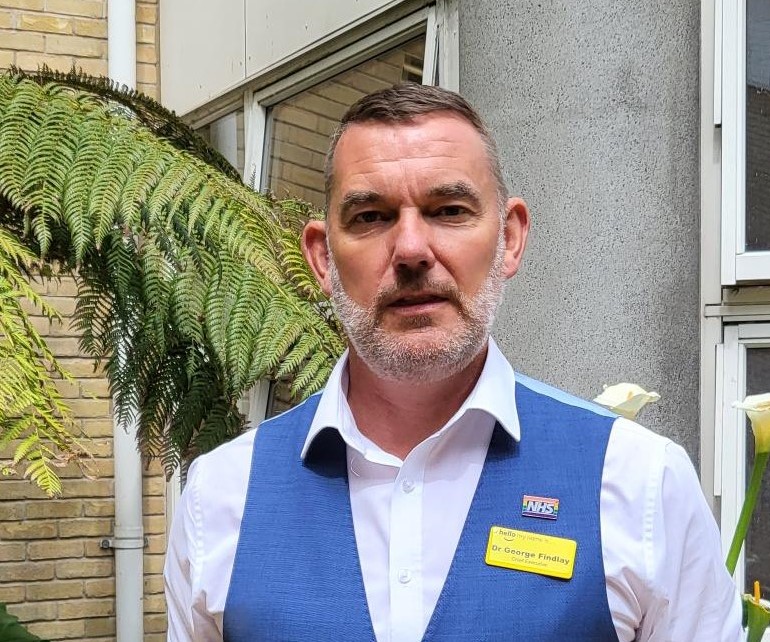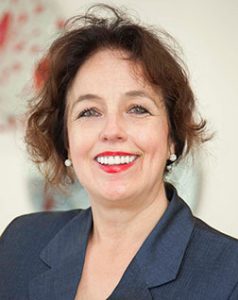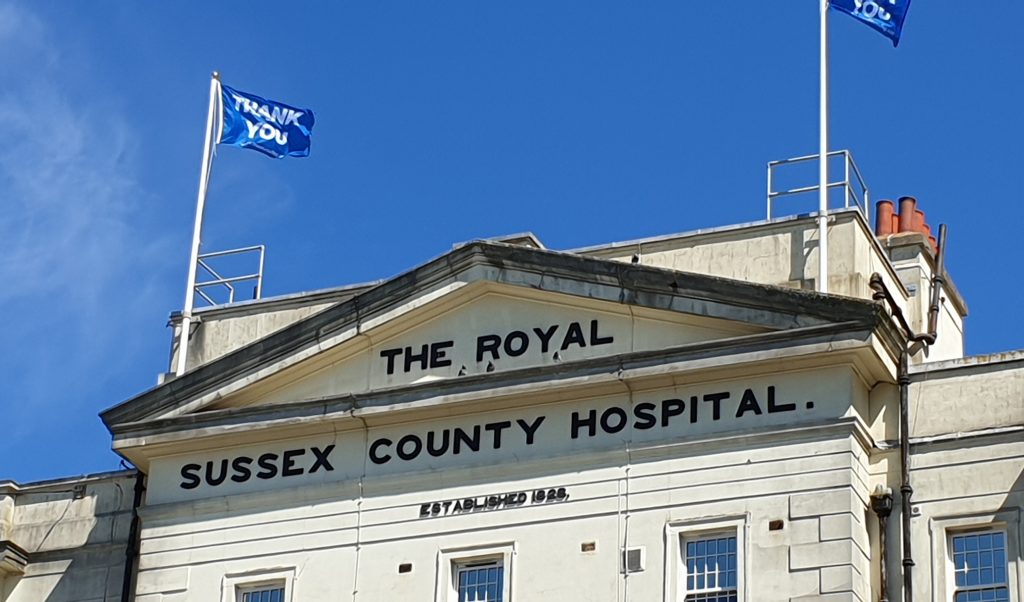A surgeon physically assaulted two trainees in an operating theatre at a Brighton hospital during surgery, according to a new report.
The attacks took place at the Royal Sussex County Hospital where there was a culture of fear and where bullying and harassment were rife, according to the Royal College of Surgeons.
The Royal College report, commissioned by hospital bosses, said that meetings with the executive leadership team were confrontational, whistleblowers were badly treated and patient care was adversely affected.
The independent report even questioned the suitability of the current executive leadership team to continue in their jobs.
The Royal College said: “It is imperative that robust action is taken to tackle unacceptable behaviours, given the reports of bullying, harassment and physical abuse.”
The effect on patients was noted, with the report saying “Major concerns were identified by the review team over high rates of cancellations of elective patients.
“This was often on the day of surgery, after patients had been waiting for up to seven hours, having prepared for surgery, for example, by not eating and/or drinking.
“The review team heard about patients being cancelled multiple times and this was causing patients psychological distress.”
The cancellations were part of the reason for significant waiting lists at the hospital which is run by University Hospitals Sussex NHS Foundation Trust. University Hospitals Sussex commissioned the report.
Yesterday (Monday 5 February) the trust’s chief executive George Findlay told the BBC: “It’s a really tough read. Staff have been working under really difficult circumstances for quite some time.
“We are starting to make a difference (but) there are no quick fixes here.”
The review team gathered evidence last May, shortly after Dr Findlay had become chief executive, taking over from Dame Marianne Griffiths.
The Royal College report criticised the trust’s leadership, saying: “The review team were particularly concerned to learn that a ‘culture of fear’ existed among staff when it came to the executive leadership team.
“There were concerning reports of bullying by members of the executive leadership team, with instances of confrontational meetings with individual consultant surgeons when they were told to ‘sit down, shut up and listen’, with no ability to express their own concerns and where they were alone and outnumbered.
“The review team noted that several consultants had reportedly left the trust as a result of these issues and others were reluctant to engage with the executive leadership team, including refusal to attend further meetings.
“The review team found that staff were reluctant to respond to whistleblowing requests, given they had experienced instances of other staff members raising concerns through such mechanisms reportedly facing bullying and being dismissed.
“While the appointment of the chief of surgery was found to be positive, as staff felt when they raised concerns they would be taken more seriously, the review team found that the listening stopped at this level, with repeated reports that communication with the executive leadership team was poor.”

Meetings with senior management were described as “all talk and no action”, according to the report, which looked at surgery – in particular, general surgery, emergency surgery and upper gastrointestinal (GI) and lower gastrointestinal surgery.
And the report said: “Consideration should be given to the suitability, professionalism and effectiveness of the current executive leadership team, given the concerning reports of bullying.”
The Royal College criticised “multi-disciplinary team (MDT) working, communication, behaviours and culture”.
It said: “There was dysfunctional team working and a lack of cohesion and unity among the surgical teams and within the general surgery department.
“They were told that consultant surgeons were dismissive and disrespectful towards other members of staff.
“The review team found that, while consultant surgeons were pleasant as individuals, they did not function well as a team and had developed more individualised and silo working practices which negatively impacted MDT working and had the potential to compromise patient safety.”

The report flagged concerns about “staffing levels in both nursing and medical roles, including long-term use of locum consultants”.
It said that there was a “high workload and unequal workload distribution – impacting on cancellation levels” and criticised “responsiveness to the (high) level of complaints”.
Morale had been affected by the suspension of upper GI (gastrointestinal) cancer resectional surgery which “had a negative impact on retention – and recruitment is difficult”.
Patients and their families had complained in droves, with the report saying that there were 7,415 complaints, incident reports and serious incidents in two years.
More than two thirds – or almost 5,000 – of these involved the Royal Sussex, although the trust also runs several other hospitals.
These include the Sussex Eye Hospital and the Royal Alexandra Children’s Hospital, in Brighton, Southlands, in Shoreham, Worthing, St Richard’s, in Chichester, and the Princess Royal, in Haywards Heath.
The Royal Sussex is a teaching hospital but concerns had been raised separately by Health Education England (HEE) and the General Medical Council (GMC).
The report said: “The review team heard that the trust had been working with HEE and the GMC to ensure that the training environment was fit for purpose.
“Foundation trainees had not been fully withdrawn but had been removed from night working. Middle grades were not formally withdrawn but were strongly advised not to undertake night duties.
“Issues had been revealed with previous HEE visits, including reports of bullying, which were also reflected in the national training survey.
“The review team were told that educational supervision had improved to reflect HEE requirements and engage surgeons in a positive way.”
Trainees were due to return last October.
The Royal College’s findings have been published as the trust awaits a separate report from the CQC (Care Quality Commission) which is also expected to be critical.
And Sussex Police is carrying out a separate investigation, known as Operation Bramber, into about 100 cases at the Royal Sussex.
Op Bramber was started to look into deaths at the hospital from 2015 to 2020 and, last September, the investigation was expanded to include cases in 2021.
Sussex Police said that it was investigating claims of medical negligence after alleged failings in general surgery and neurosurgery. The number of deaths has been estimated to total 40 with other patients having suffered “adverse outcomes”.
Dr Findlay said: “I asked for this independent report because our surgery teams have faced huge challenges over many years.
“We’re all focused on improving care so we needed to ensure we had the right plans in place and a clear picture of what still needs to be done so that our colleagues are supported to look after their patients more effectively.
“Since last May, when the review took place, major changes have begun – we have invested in extra staff and are recruiting now, we are seeking more theatre and bed capacity and we have approved the opening of a Surgical Assessment Unit.
“The reviewers also noted the open attitude of staff and good local leadership – essential ingredients for a good service.
“Long-term problems cannot be solved overnight but significant strides are now being made. We all want to further improve patient care so the job of building a stronger structure around the team, and stronger relationships, remains an absolute priority.”












“No quick fix”! There damn well should be!
But, unfortunately, there is not.
It goes from bad to worse. If the top brass are not up to the job for goodness sake stand aside and let people who are more experienced and capable step up.
This is so sad but unfortunately it is all true.
Bullying and harassment in the medical field is widespread amongst several professions, in my experience.
“I said ,give me the scalpel”
” no you can’t have it, get your own”
“Do you want to finish up in
this hospital”?
” not a chance, here’s your scalpel then”
This is what happens when doctors turned administrators (or nurses ditto, as with Marianne Griffiths) are in charge of a very major project. Such projects should be run and managed by capable people with expertise in major project management and getting things done, not by medical people masquerading as something else. Obviously, medical people need to be consulted and have input to what is going on, but they should not be driving the bus. Perhaps someone could tell us what Dr Findlay’s qualifications (not his medical qualifications) are for driving this major project which is about building and logistics , financial acumen and delivering on time and efficiently. Thought not.
Absolutely spot on. Some are amazing, most haven’t a business bone in their bodies
Nationally we need to stop this silly myth that the best performing trusts are fronted by failed clinicians. I’m a consultant surgeon with 20 years experience, and I should not be anywhere near a major infrastructure project. We need good professional managers who will gain the respect of clinical colleagues by doing the good job for which they are trained.
I think this is a comment made by someone who has never spent a day working in Healthcare. Your right, the majority of clinicians are not commercial or understand business – but those of us that do are exactly the right people who should be in these positions. I personally don’t think either George or Dame Marianne have direct blame for any of the issues that happen at this Trust, but ultimately the responsibility lies with them to make sure people are doing their jobs and the environment is a good one. To answer your question, George has a fantastic track record of improvement, having moved a number of trusts from inadequate positions to CQC Good. It’s not fair of you to make such comments without the experience or knowledge yourself.
I hope the trainees assaulted the surgeon in return, wiith a well-timed slap. The only way to deal with bullies is to give them a taste of their own medicine. No pun intended.
I have just discovered that I have an MRSA infection after minor surgery at the Sussex which they failed to notice on post op test results and failed to tell
Me about . Have now had it for 8 weeks and been very ill. Even after it was discovered on my records by my Gp not one person at the hospital apologised and basically acted like I was a pain to be got rid of asap . Major complaint being filed .